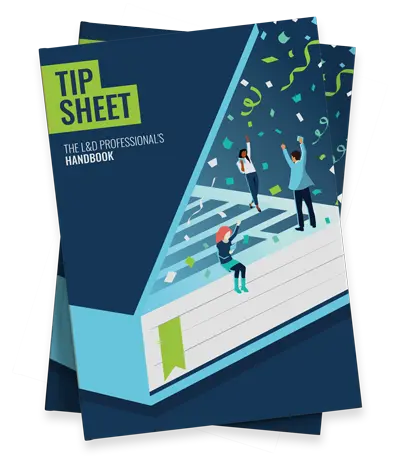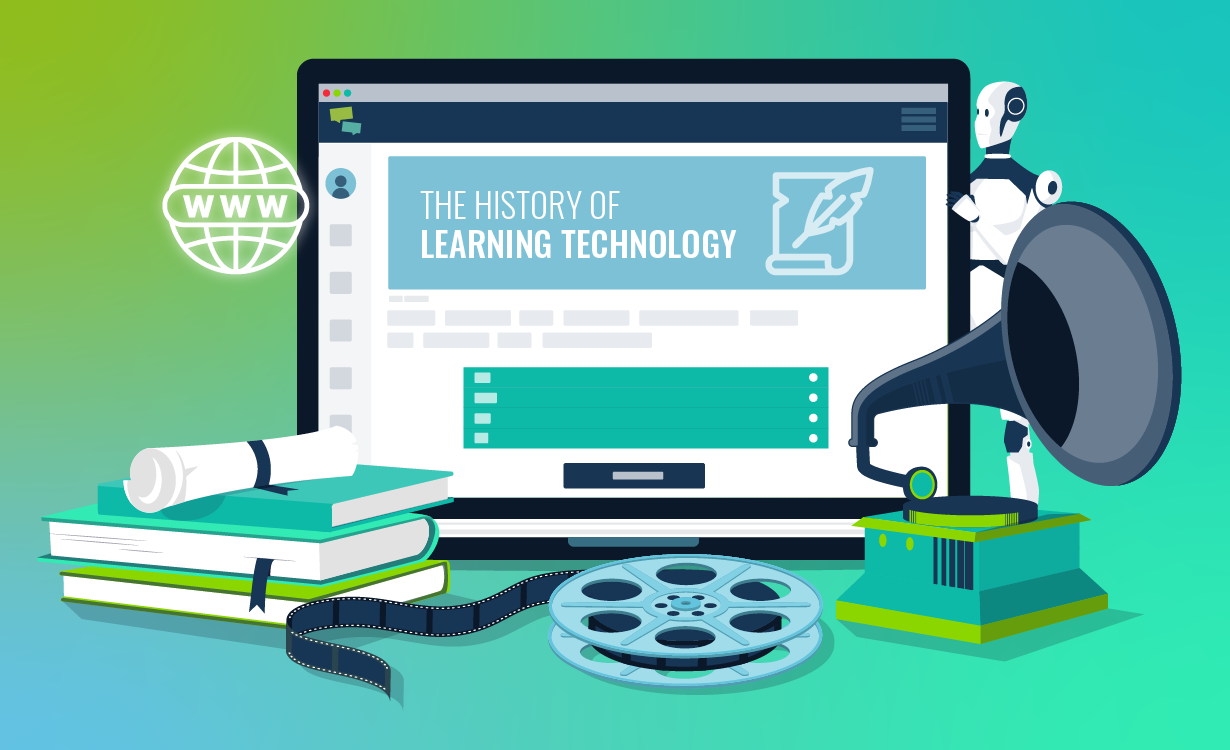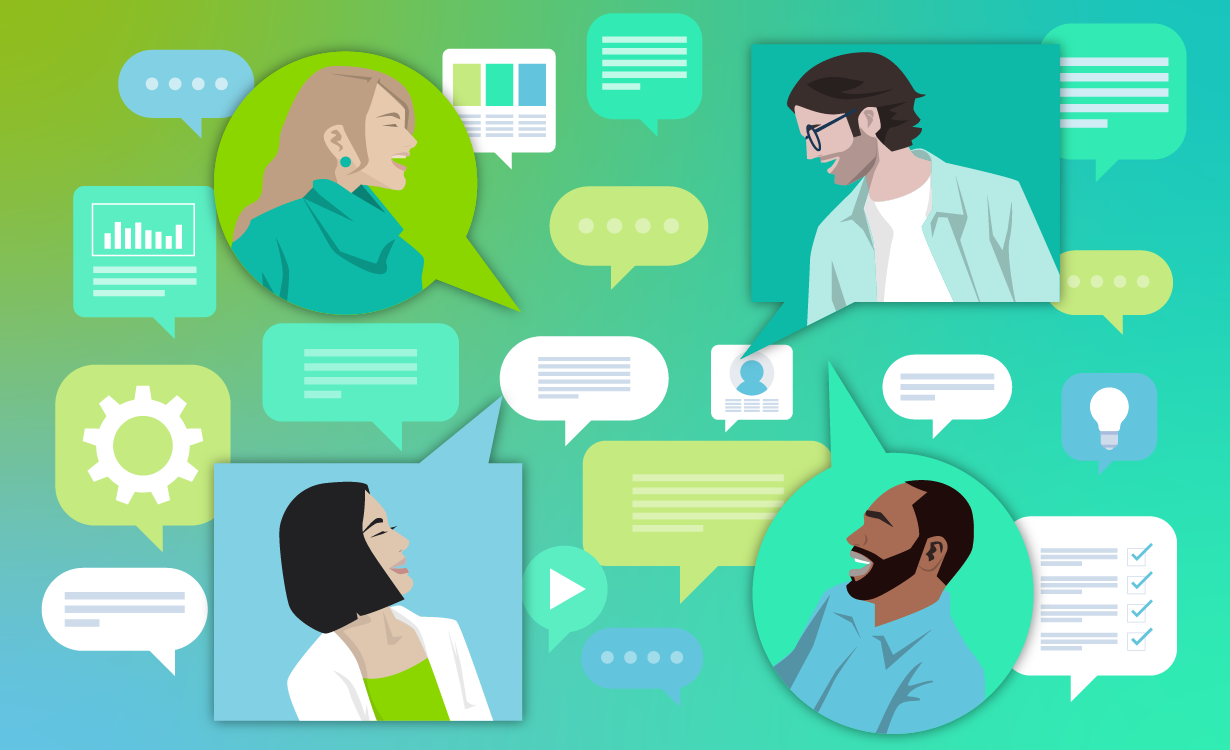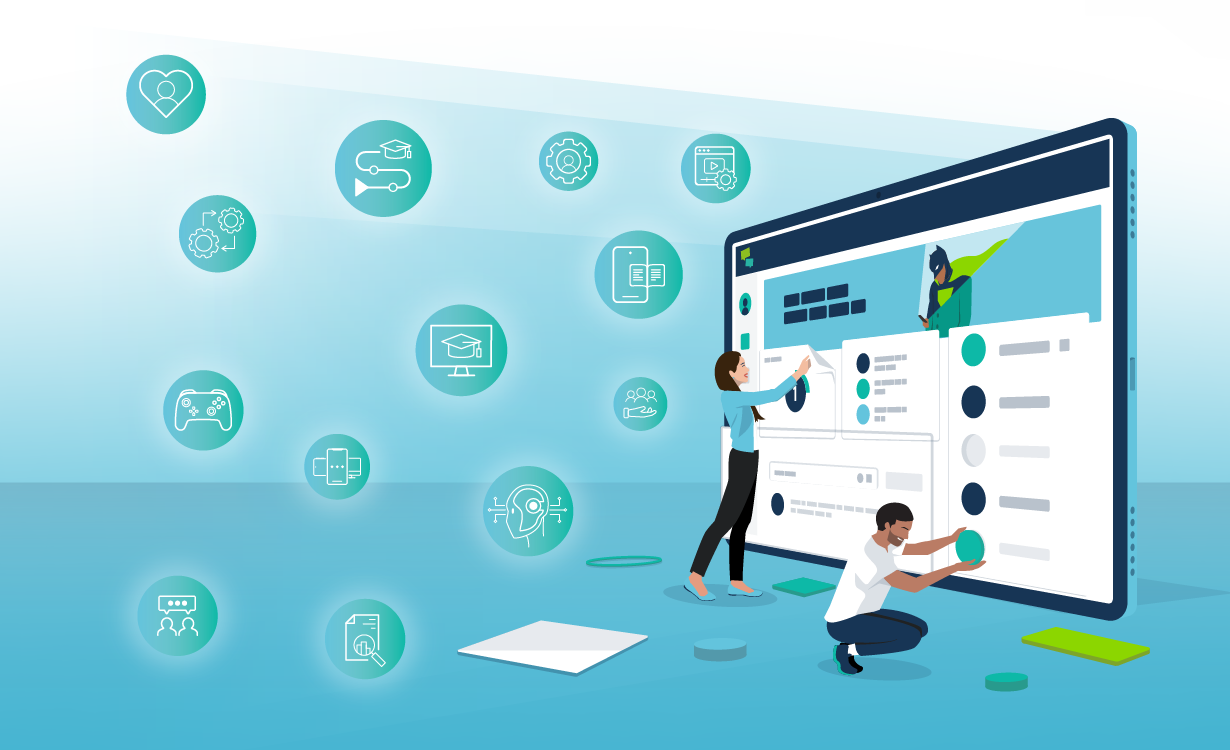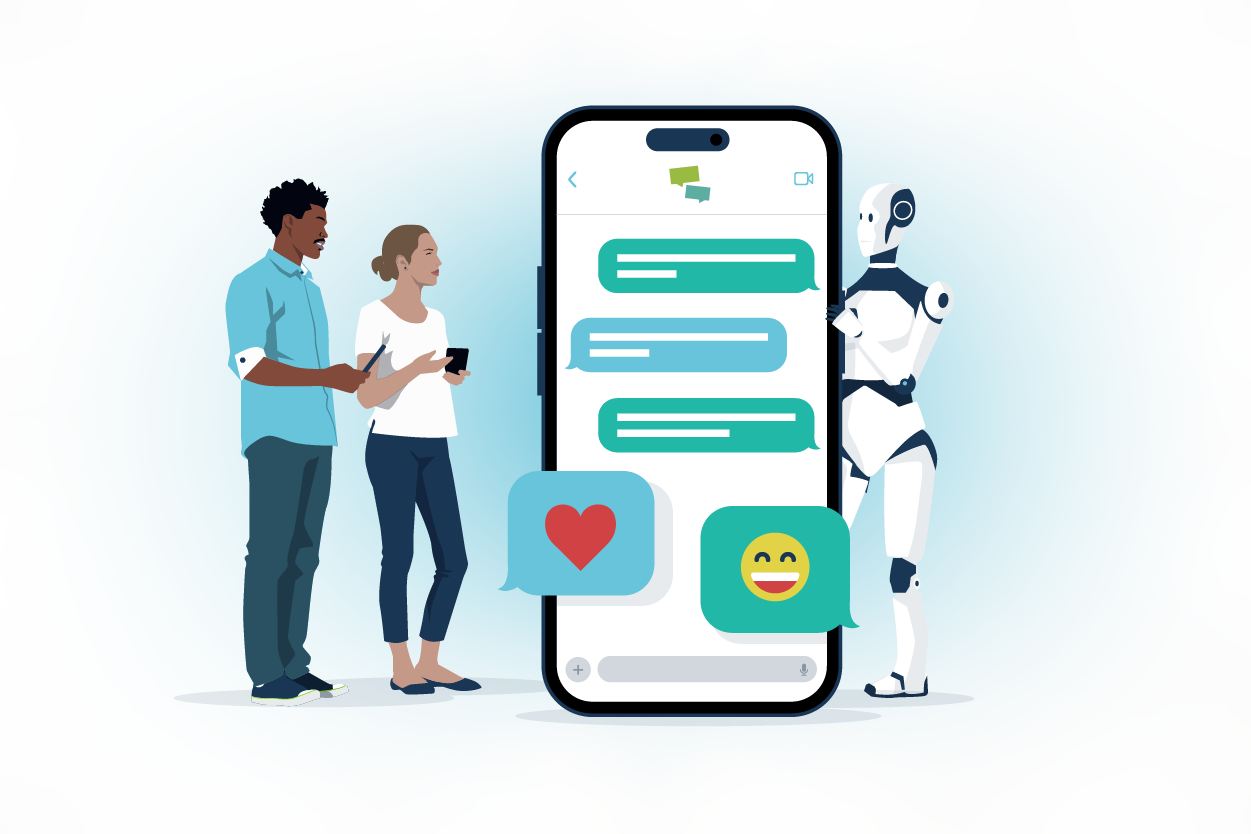
When it comes to coaching and performance management, one size does not fit all. Personalised support and guidance matters. However, it’s difficult and costly to deliver at scale. Luckily, things are about to change. Welcome to the age of the AI coach.
Coaching is a remarkably effective approach to organisational learning and development. In fact, combining coaching and training can lead to an 88% boost in productivity. This contrasts with a 23% boost from training alone.
However, coaching at scale is ‘chaos’. So says Bryan Ackerman, a Managing Partner for Assessment and Succession at Korn Ferry. It can also be eye-wateringly expensive. Thankfully, artificial intelligence is ready to democratise the coaching process.
The way we interact with technology has changed. At least 88% of customers had one conversation with a chatbot in 2023. Furthermore, 62% of those surveyed were happy to use a chatbot, rather than wait for human assistance. We are ready for this revolution.
Josh Bersin said that AI-enabled coaching was ‘hot’ back in 2021. Well, now it’s scorching! So, grab your oven mitts as we explore what an AI coach is, how they can support your learning and development efforts and the benefits they bring. Let’s dive in.
What is an AI Coach?
Coaching is a transformative process where the coach delves into the strengths and weaknesses of their coachee and guides them to unleash their full potential. As you might guess, a digital or virtual coach takes this process online.
An AI-powered digital coach leverages artificial intelligence (AI) and machine learning algorithms to provide learners with personalised guidance, feedback and support across various aspects of their development.
AI coaches are designed to mimic the role of a human coach, but operate in a digital, automated and more scalable manner. They often take the form of a chatbot, facilitating a dynamic exchange between the coach and the individual seeking guidance.
As users interact with their AI coach, it learns about them, their needs and their preferences. This data helps the coach to offer tailored advice, guidance and recommended learning interventions.
How Do AI Coaches Help?
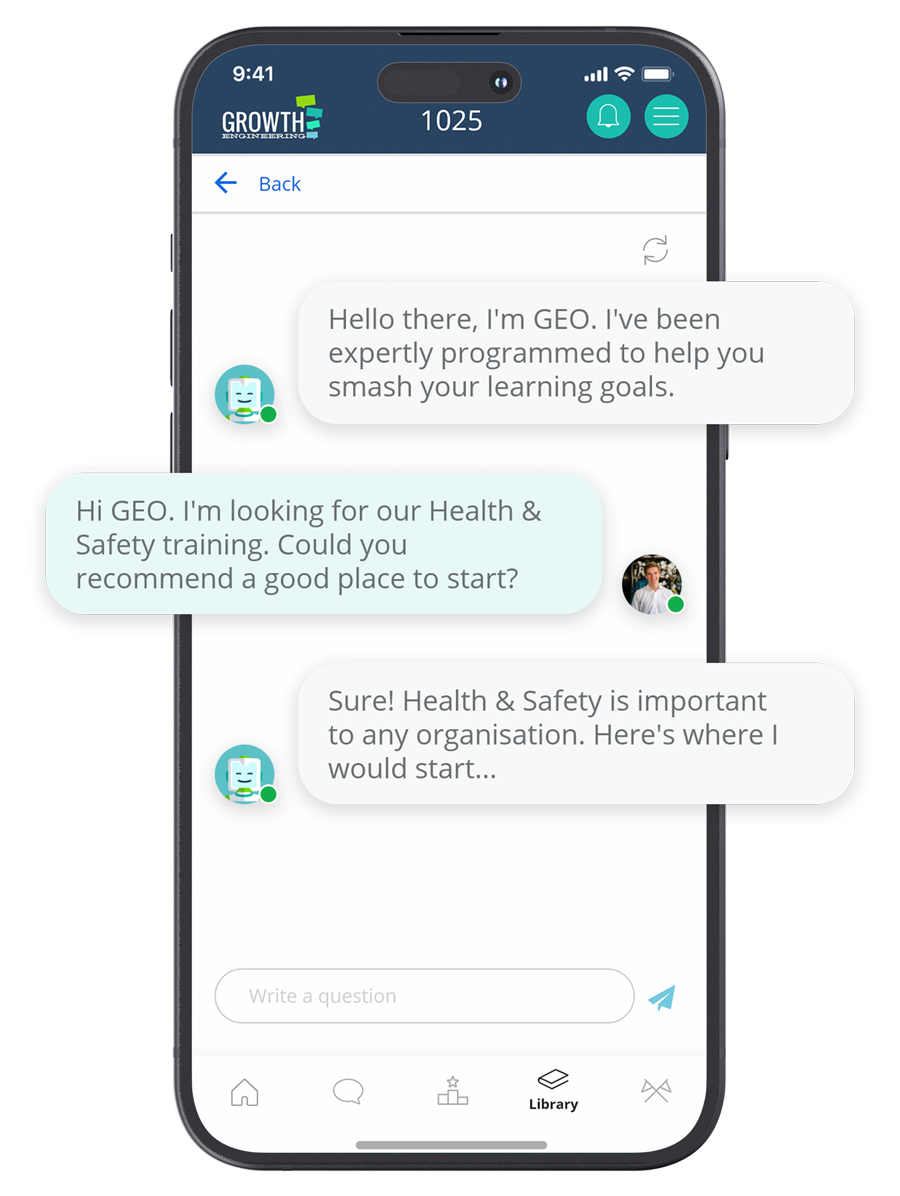
It’s easy to imagine the impact that AI coaches could have on our personal lives. Just picture having a coach that’s always ready to offer tailored guidance on financial planning, relationship building and decision-making.
Google is already hard at work on an AI assistant that will offer life advice. Microsoft Reading Coach uses generative AI to help learners produce their own stories. LinkedIn has a built-in AI coach to support job hunters. The applications are endless.
However, today we’re focusing on how AI coaches are poised to revolutionise organisational learning and development (L&D). For instance, with an AI coach in your arsenal, you’d be able to offer support in the following areas:
- Employee Training: Deliver personalised training programmes designed to improve employee knowledge and skills.
- Career Development: Offer guidance on career paths, industry trends and market demands based on individual aspirations.
- Onboarding: Assist new hires by guiding them through company policies and procedures and answering their questions.
- Performance Improvement: Analyse performance to identify strengths and areas for improvement and then provide constructive feedback.
- Soft Skills: Offer guidance on developing essential soft skills such as communication, time management, leadership and teamwork.
- Health and Wellness: Support your team in achieving their health and wellness goals by providing guidance on exercise, nutrition and overall well-being.
- Diversity and Inclusion: Facilitate diversity and inclusion training programmes to promote awareness and understanding.
And we’re barely scratching the surface here. The adaptability and personalisation capabilities of AI coaches make them valuable support across various fields.
Weak vs Strong AI
All current applications of AI (including virtual assistants, chatbots and recommendation engines) are based on the first development stage of artificial intelligence, weak AI. This type of AI is bound to a specific data set and trained for a narrow set of tasks.
In contrast, strong AI represents a theoretical form of artificial intelligence characterised by human-like intelligence, consciousness and the ability to understand, learn and perform a broad range of tasks.
Reassuringly, experts suggest that the realisation of strong AI or artificial general intelligence (AGI) is unlikely to occur before 2060.
How AI Coaches Work
Nevertheless, what is often referred to as ‘weak AI’ is actually pretty powerful. And all it requires is a well-curated dataset, an appropriate algorithm and sufficient computing power. Let’s break it down:
- AI coaches are trained using labelled datasets and a prescribed algorithm or set of rules. As a result, they learn over time through trial and error based on the examples provided.
- The AI coach then employs natural language processing (NLP) techniques to understand and respond to user input.
- The final stage is to implement a chatbot-like interface to facilitate interaction between the coach and the coachee.
Typically, scalable cloud computing resources are used to handle the load of enquiries and to ensure that everything runs smoothly. The interface itself can also be integrated with digital learning platforms like learning management systems (LMSs) or learning apps.
Using an AI Coach
Now that we’ve tackled the technical aspects, let’s delve into the user experience. So, how exactly do AI coaches operate in real-life scenarios? Generally, interaction with an AI coach involves the following elements:
- Data collection: Before your AI coach can offer tailored guidance, it needs to get to know your learners. At this stage, it will collect relevant employee data, including performance metrics, training history and assessment details. It will also seek to understand the learner’s aspirations, interests and preferences.
- Goal setting: Based on this information, the AI coach will then work with the learner to set personalised and realistic development goals. The coach will work to ensure that these goals are aligned with the individual’s career aspirations and your organisation’s overall objectives.
- Development plan: Once the AI coach has a clear goal in mind, it can then generate a personalised development plan for the learner. This plan will include recommended learning resources (tailored to the learner’s preferences) and the steps required to achieve the learner’s objectives.
- Easy communication: Learners will be able to communicate back-and-forth with their AI coach through a chatbot interface. This empowers learners to ask questions, seek clarification and engage in discussions about their development. It’s like having 24/7 access to a subject matter expert.
- Real-time feedback: As learners make progress, they can check-in with their AI coach to receive real-time feedback on their performance. Their coach can analyse learning data or use assessments to establish patterns and trends. It can then make any required adjustments to the learner’s development plan.
- Learner engagement: Your AI coach can also provide encouragement for your learners. For instance, it could use game mechanics like Badges, XP and Leaderboards to spur learners on and encourage them to hit specific milestones within their development plans.
- Data integration: As a digital tool, you can seamlessly integrate your AI coach with other systems to facilitate better data flow and task automation. For instance, integration with your HR system allows for automatic updates to employee records when the coachee reaches specific milestones.
- Continuous support: The fun doesn’t have to stop once a learner has completed their development plan. Your AI coach can adapt its approach based on evolving employee needs, industry trends and organisational changes. It’s there whenever your learners need it.
The Benefits of AI Coaches
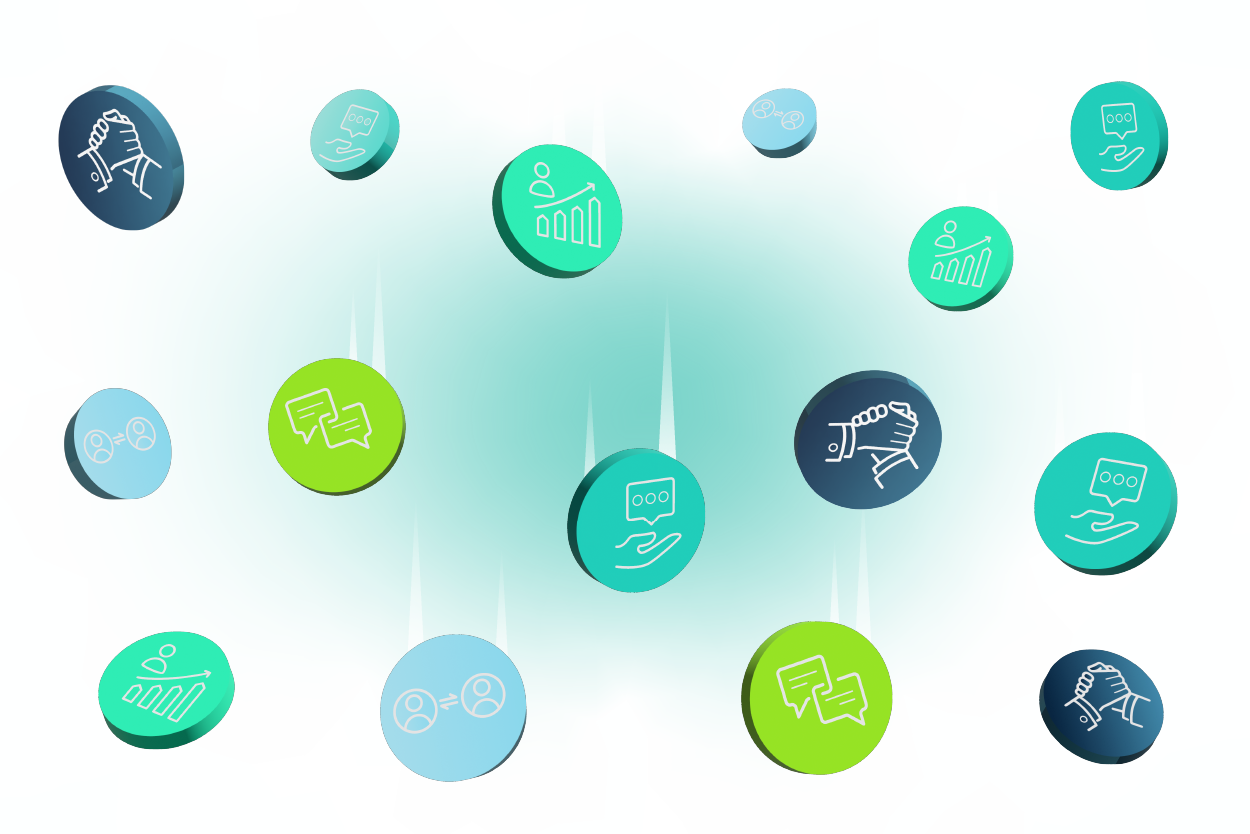
Introducing AI coaches into your employee training approach provides a range of benefits that contribute to the overall effectiveness of your learning and development initiatives. Here are just some of the advantages:
- Personalised Learning: AI coaches offer uniquely personalised learning experiences. After all, they create development plans based on learners’ needs and preferences. How often do your learners get this sort of one-on-one support?
- Continuous Learning: Most formal training programmes come to an end. After all, there’s only so much training content out there. Conversely, AI coaches foster a culture of lifelong learning, aligned with the ever-changing nature of work.
- 24/7 Availability: Human coaches need to eat, sleep and manage their busy schedules. AI coaches, on the other hand, are ‘always on’ and ready to support their coachees. This helps to enable ‘just-in-time’ learning experiences.
- Data Analytics: AI can review large quantities of data and generate meaningful insights for their coachees. They can also produce data-driven insights about user engagement, performance and learning patterns.
- Cost Savings: AI coaches reduce the need for human intervention in routine training tasks. This can lead to significant cost savings in terms of time and resources. Just consider how expensive it would be to assign every employee a human coach.
- Scalability: Unlike human coaches, AI coaches can handle a large number of users simultaneously. They can also automate tasks, deploy quickly and operate in a cost-effective manner. In other words, they’re ready to scale in line with your business needs.
- Increased Engagement: AI coaches empower learners to take control of their own learning and development. This, along with the interactive and conversational nature of AI, helps to enhance user engagement.
All these benefits are likely to have a positive impact on retention, behaviour and performance. This would lead to increased efficiency and effectiveness and a better return on investment against your training spend.
AI Coaches: The Research
Indeed, a recent study backs up this speculation. Research shows that AI-powered coaches are just as effective as human coaches, if there are clearly defined goals and explicit measures of success.
Furthermore, an AI–coaching pilot in the utilities space led to 8-10% higher productivity and 5-10% cost reduction. One of the field managers noted: ‘the AI coach doesn’t let anything fall through the cracks’.
There’s also an argument to be made that AI coaches will one day outperform human coaches, as their access to data increases and smarter algorithms begin to surface. However, AI coaches aren’t without their own set of challenges.
AI Coaches: The Challenges
This large and compelling list of benefits may have you worrying about human coaches being replaced with AI counterparts. Well don’t fret just yet. Human coaches will continue to play a role in organisational learning for some time to come.
After all, the implementation of an AI coach poses various challenges. Let’s delve into some of these difficulties.
- Lack of Humanity: The central challenge of AI coaches is their lack of humanity. After all, they are unable to provide the emotional intelligence and empathy that human coaches can bring to a relationship. As a result, your learners are unlikely to leap on their desks and chant ‘O Captain, My Captain’ in support of their AI coaches.
- Decision-Making: Your AI coach will inevitably have to prioritise and make decisions. For instance, it may need to decide between meeting a learner’s goal and an organisational objective. It may also need to prioritise driving efficiency or reducing risk. Are you ready to delegate these important decisions to an AI coach?
- Ethical Objectives: Similarly, are we prepared to entrust AI coaches with the responsibility of making ethical decisions, particularly in scenarios that demand a sensitive approach? Currently, there are no universally accepted ethical standards for AI coaching. As such, responsible decision-making is not guaranteed.
- Biases: Your AI coach is shaped by the training data and algorithms employed during its development. As a consequence, it may inadvertently inherit or adopt biases. This can lead to coachees experiencing unfair treatment or discrimination, perpetuating pre-existing inequalities. It is imperative that we avoid this outcome.
- Dependency: Your learners may also be at risk of becoming dependent on their AI coach. After all, this is a remarkably powerful tool to have access to. This could hinder the development of essential skills such as critical thinking, decision-making and interpersonal communication. Is this worth the trade-off?
- Privacy: In order to meet the diverse needs of different learners, AI coaches require access to personal data. This raises a number of privacy concerns. Improper handling of sensitive information may result in privacy breaches. This would cause damage to your reputation and could expose you to significant financial penalties.
It’s clear that organisations will need to strike a balance between leveraging the benefits of AI and ensuring that coaching experiences remain ethical, inclusive and aligned with human values.
Growth Engineering’s Approach
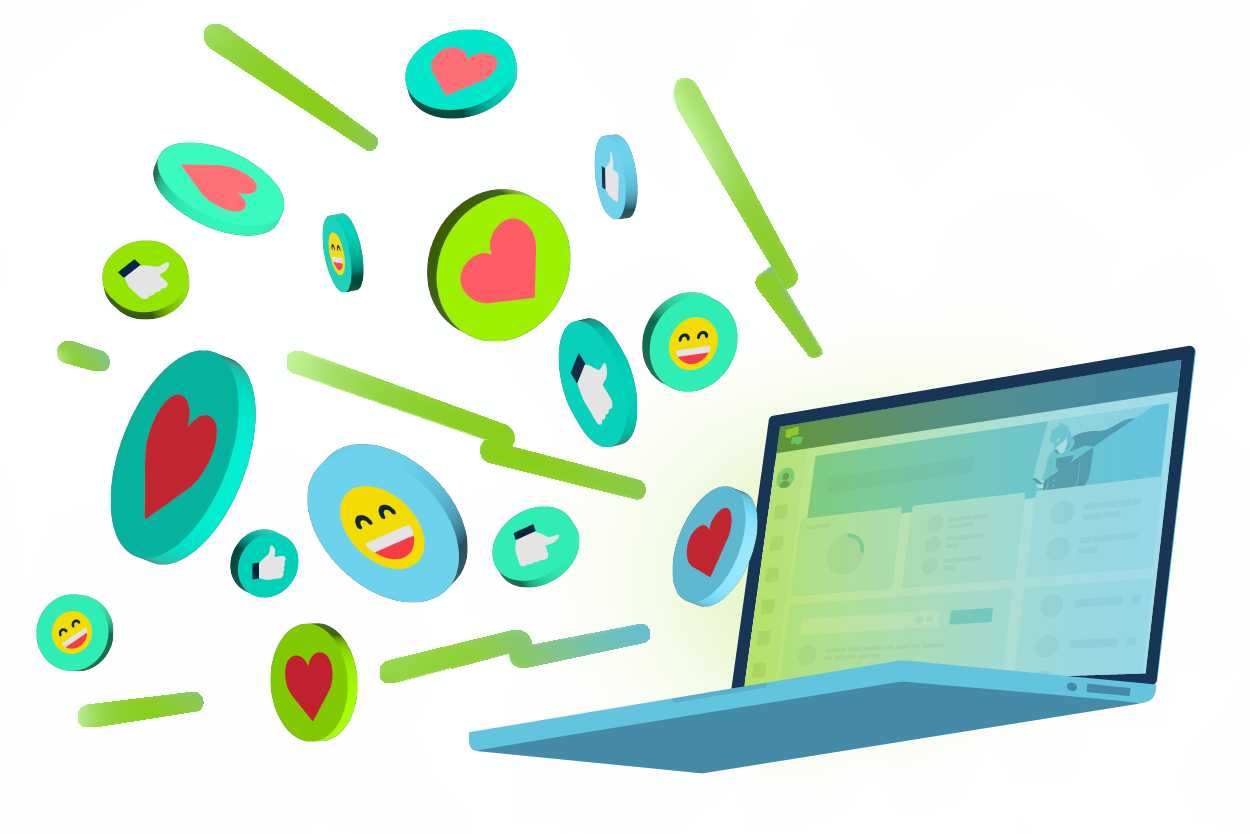
Growth Engineering LMS is the world’s most engaging learning management system. It’s designed to excite and delight your learners throughout every step of their journey.
Your learners will have access to their own AI-powered assistant. This virtual guide is ready to answer tricky questions and share information at the point of need. It offers unwavering support to learners whenever they seek assistance.
However, we’re hard at work on something even more exciting. Stay tuned!
The Future of AI Coaches
AI coaches will not replace human coaches. As humans, we long for genuine connection and a sense of belonging. As we’ve seen, AI coaches lack emotional intelligence and empathy.
Despite this, AI’s increasing influence in coaching is ‘inevitable’. AI will democratise coaching, making it possible for anyone to have their own coach. As a result, human coaches will learn to use AI coaches to supplement and support their own approaches.
As the role of AI in coaching continues to grow, we anticipate its widespread integration into organisational learning and development practices. Over time, an AI coach is likely to become a standard feature within learning technology solutions such as LMSs.
Ultimately, this will result in enriched learning experiences and a better return against your training investment.
Final Words
Artificial intelligence will transform almost every area of our lives. Coaching is no exception. This has always been an effective approach to learning and development. However, it’s also been costly and difficult to scale.
Thankfully, the rise of AI coaches signals a transformative shift. These digital mentors are designed to provide your learners with personalised guidance and feedback through an automated and scalable approach. What’s not to love?
Of course, progress doesn’t come without potholes. By their nature, AI coaches lack humanity. They can also adopt damaging biases as a result of their dataset. As such, the future of coaching is likely to involve a symbiotic relationship between human and AI coaches.
This fusion between human expertise and AI capabilities holds immense potential. Are you ready for this brave new world?
Thank you for reading. Coaching is just part of the organisational learning puzzle. For the full breakdown, please download ‘The L&D Professional’s Handbook’. It contains 165 tips to help you overcome any training challenge.

